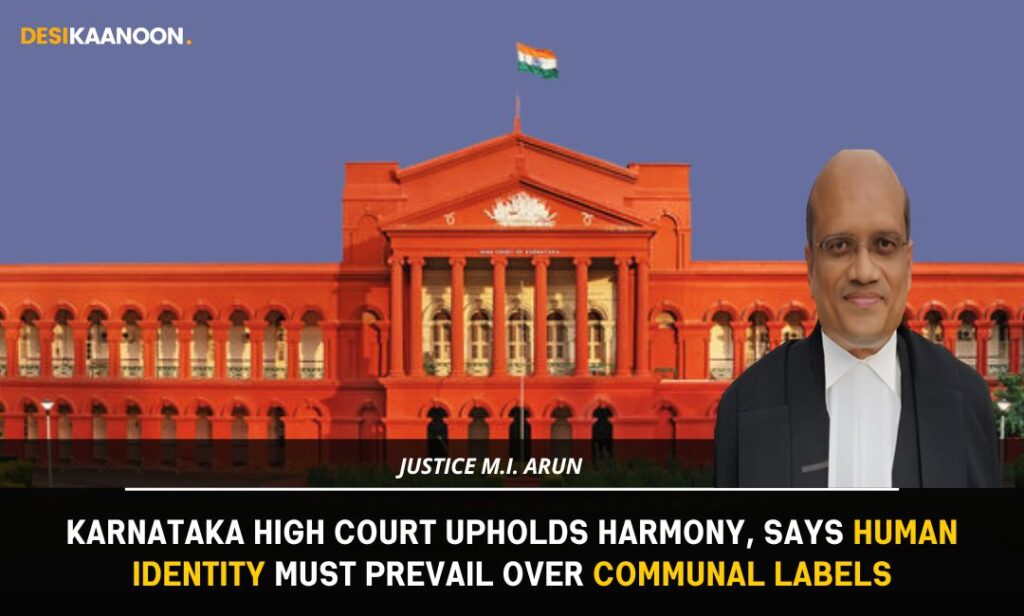On June 26, 2025, in a progressive ruling, the Karnataka High Court emphasised that “the salvation of the country lies in identifying human beings as human beings and as Indians, with other identities playing a secondary role.” Justice M.I. Arun made this observation while deciding a writ petition related to communal tensions in Yadgiri district.
The petition was filed by the organisation Madiga Dandora, challenging public celebrations of Muharram in Tumkur village. The petitioners stated that the Madiga community, historically involved in the folk dance ‘Alai Bhosai Kunitha’ and percussion performance during Muharram, had stopped participating due to caste-based discrimination. They claimed they were forced to beat the halige (drum) because of their “untouchable” status.
This resistance led to communal tensions between the upper-caste Hindus and the Dalit Madiga community Concerned about the possibility of renewed clashes, the petitioners sought a prohibition on public celebrations. However, state authorities had not responded to their representation, prompting the court’s intervention.
The Assistant Commissioner of Yadgiri, through an affidavit, recommended against holding the festivities due to law and order concerns.
The Court noted that Yadgiri, located in the Hyderabad-Karnataka region, stands as a shining example of communal harmony. Here, Muslims and Hindus often participate in each other’s religious festivals. Institutions like Sharanabasaveshwar Temple and Khaja Bandanawaz Dargah are strong symbols of peaceful coexistence.
However, Justice Arun noted with concern that a traditionally harmonious festival had triggered caste conflict and said:
“A community has a right to celebrate a festival, but no one can force another community to perform acts they despise, even if traditionally done.”
The Court directed the state to consider the petitioner’s representation and consult all stakeholders before making a decision. It further clarified that even if festivities continue, the Madiga community cannot be compelled to beat the halige.
The High Court emphasized the State’s responsibility to safeguard all participants and maintain communal harmony. It concluded that while promoting festivals that foster unity is essential, peace and dignity must not be compromised.
Case Name: Madiga Dandora v. State of Karnataka & Ors.
Case Number: WP No. 201685 of 2025
Bench: Justice M.I. Arun
Click here to read the judgment
Instagram: Click here
LinkedIn: Click here
For Collaboration and Business: info.desikaanoon@gmail.com

